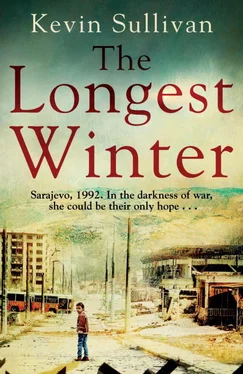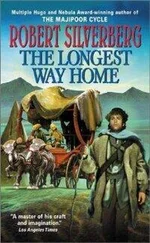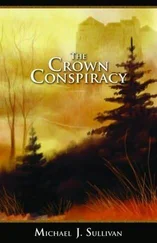Just a few hours had passed since she had thought she was about to die in the white waste between the arcade and the garage. After the song contest, Sanela and Terry stopped at the Holiday Inn on their way to Jurić’s place. In her room Terry remembered her passport. That she could have forgotten about it until then was inexplicable and unforgivably stupid. She was acting differently from normal. Her thoughts had started to form new patterns. Her way of feeling had changed. In her everyday world she would not have overlooked her library card, never mind her passport.
Alija waited for Jurić to return from the kitchen with a soft drink. There was a bottle of Scotch on the coffee table in front of the sofa, and canapés – cheese and meat paste and biscuits. These had been laid out on three plates. Alija reached over and picked up a biscuit and put it in his mouth. It was stale and the meat paste was ice-cold. Jurić handed him a glass. He drank the juice, washing away the taste of the canapé.
‘So,’ Jurić said in English. ‘What news?’
Alija shrugged.
Jurić said to Terry, ‘He gives away no secrets, but he knows everything!’
‘That isn’t true, of course,’ Alija remarked, in the sort of untroubled voice that distinguishes someone who knows everything. ‘Tell me,’ he asked Terry, ‘in Otes who did you speak to, in our army?’
‘To your friend – Jusuf,’ Zlatko replied on Terry’s behalf. ‘He said it could be done, in the morning.’
Alija nodded again and then he said, ‘I wish you luck.’
‘Are you in the army?’ Terry asked Alija.
He threw up his hands to indicate that nothing could be further from the truth. ‘I’ve never fired a gun!’ he said. ‘I run errands.’
‘He keeps secrets,’ Jurić said. Then, after a moment’s silence, ‘Alija is an adviser in one of our ministries, but what he really does is run the government!’
‘Alija!’ Zlatko said. ‘We need you to sing for us!’
‘Time you earned that orange juice,’ Edis the theatre director added. He was sitting with Jamila on a large armchair.
‘How’s the play?’ Alija asked.
‘It’s not a play, it’s a musical,’ Edis corrected. ‘It’s going very well. I wish it wasn’t.’
‘Edis thinks we should be doing something more serious than putting on musicals,’ Jamila explained.
‘I thought it was your production.’
‘It is. I have created a Frankenstein!’
‘It’s good for morale,’ Alija said and at once he was sorry. The musical was good for morale, but he understood Edis’ frustration. He knew the theatre could do more than raise spirits.
‘Edis has written a new play,’ Jamila said.
‘About the war?’ Jurić asked.
‘Not this war. It’s set in the eighteenth century.’
‘Alija, give us a song!’ Zlatko interrupted. He was quite drunk.
‘It’s a party,’ Jurić agreed. ‘In honour of Dr Barnes! Sing her one of our songs!’
Jurić stepped out of the room and returned with a guitar. He handed it to Alija, who put his orange juice on the table and began to pluck the strings and tune the instrument.
The room was lit unsteadily by two candles on the small table beside Sanela and Zlatko and two more candles on the coffee table. The latest blackout had lasted three weeks.
Terry stood and walked to the other end of the sofa, where there was a space to sit. This gave Alija more room. Sanela spread the covers on the sofa before Terry sat down.
Alija’s face looked softer by candlelight, less spectral. His beard was very thick. He was about the same age as Jurić and Edis, mid thirties, and the guitar in front of him hid his thinness.
Alija strummed the guitar and began to sing. His voice was harsh, in keeping with the style of the music. He played short sharp chords and sang initially in a strange staccato, then he developed the melody so that it was softer and easier to follow.
‘This is an old, old song,’ Sanela whispered to Terry. ‘It’s about love, of course. The singer yearns for his girl, but she has been promised to another.’ She stopped and then added, ‘I suppose that isn’t a very original story!’
The listeners nodded appreciatively when Alija executed long chains of descending and ascending notes in which the resolution chord was constantly deferred as the singer followed more and more complex progressions. It was mournful and beautiful.
The song ended and Alija began another. After the opening bars, he and the rest of the company looked to Jamila and she joined in, closing her eyes as she sang. She had a husky voice, a deep contralto. This song was mournful too, austere and exquisite. Edis looked down at the coffee table, smoke spiralling into the darkness from his cigarette.
Terry watched Jurić, sprawled in an armchair. He seemed completely relaxed. She thought about his hospital, where they lacked the most basic medicines, where the wounded queued in dirty corridors.
Jamila wore mascara and red lipstick. She wore one earring, in her left ear; it was silver, three small chains with hearts suspended at the end. Edis had short grey hair, thick eyebrows and three days’ beard. His face was lined. He chain smoked.
They all lived on humanitarian aid, queuing in the snow and sleet to collect water from broken pipes. They spent nights in freezing, unlit rooms. They were familiar with the calibre of heavy weapons, expert at telling how far away a shell had landed by the sound of the explosion. Every day, twenty or thirty of their fellow citizens were murdered. Every single courtesy these people showed, every gesture of fellowship, every act of kindness required courage. Their decency demanded optimism and reserves of hope.
Jamila finished singing and they clapped and cheered. She smiled and the mood lifted. Jurić filled glasses and complained because he had to go to the kitchen to fetch more orange juice for Alija.
‘Will you sing for us, Doctor?’ Jurić asked.
Terry began to shake her head, fearing that Jurić would insist, but instead he said, ‘We’ll sing one of your songs, and you join in. Yes?’
She nodded gratefully, wondering what one of her songs might be.
Alija played a few familiar notes and began to sing ‘Yesterday’.
At least Terry knew the words.
Zlatko lifted his glass and looked at it in the candlelight. When Sanela moved, the left side of her body rearranged itself against the right side of Zlatko’s body. He loved the touch of her. He loved the way Sanela dressed; he loved the way she read the newspaper, with a studious expression that made her look severe; he loved the way she dissected ideas, her own and other people’s. It was all abstract to her. Zlatko loved the way Sanela was glad to see him even when she was in a bad mood. He loved the way she was good tempered even when she was bad tempered. She would announce that she planned to be unreasonable and warn him that if he wanted to speak reasonably he should speak to someone else. Sanela was a woman Zlatko could not have created whole from his imagination. She was of herself; she was independent and particular.
Sanela began to sing when Alija played ‘Yellow Submarine’, this also in honour of Dr Barnes. Towards the end of the song they realised that the chorus, in which everyone, including Terry, joined in, was being accompanied by a loud but irregular beat. It wasn’t part of the music. It was someone hammering on the front door. The song trailed away and Jurić went out to see who was there. A current of cold air flowed into the living room from the hall when he returned with the new arrival, a small neat man wearing a rumpled suit and a checked shirt with an acrylic tie that had a huge knot. His name was Mehmed and he knew everyone in the room except Terry. He greeted the company shyly and followed Jurić to where Terry was sitting.
Читать дальше












